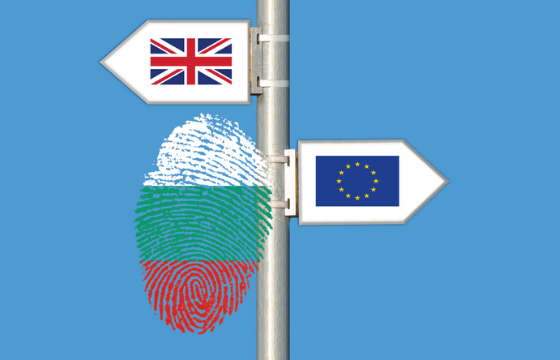As we are entering the pivotal week for understanding how Brexit is going to untangle, there are obvious reasons to be anxious. If the EU will extend the negotiation period for the UK is one of them. Another one is whether or not the UK will leave the European Union with a deal or not. A third apparent reason is what that deal would contain and whether it could pass in the UK Parliament.
All of these anxiety-instilling reasons are legit and overshadow the reasons why small countries like Bulgaria should relax when it comes to Brexit, whatever the outcome. While the approximately 100.000 Bulgarians who currently live in the UK might feel dizzy at the thought that something positive might come out of Brexit, the picture will be much more variegated as the UK proceed with leaving the Union.
The most positive effect that might Brexit might have on Bulgaria is in terms of investments. Bulgaria should be among the most attractive destinations for firms registered in the UK which aim to keep their access to the European single market. This information is far from obscure as even the official government website of the UK advertises the favorable business climate in Bulgaria, and Bloomberg ranked Bulgaria the sixth most attractive business destination in Eastern Europe and Asia in 2015. Moreover, the average net salary in Bulgaria is only $400 per month – the cheapest in the EU, which makes Bulgaria’s labor attractive to foreign investors. The corporate and income tax rates in Bulgaria are fixed at 10%, making a compelling case for investing or relocating a firm in Bulgaria, and the stable currency of the country corroborates that.
While the Brexiteers focused their campaign on lamenting the fact that EU funds are spent in the Balkans, the contradiction is that these exact funds that were spent in Bulgaria ever since the country’s EU accession in 2007 will now incentivize British firms to invest or relocate their businesses there. Bulgaria is in the top three countries that receive the most EU funds which have drastically improved the country’s infrastructure. Thus, the fact that the EU will further financially support the region’s connectedness makes Bulgaria a good investment destination not only because of its improving infrastructure but also because of Bulgaria’s geographic advantages. Bulgaria’s closeness to the Central and Eastern European market, its exposure to the Black Sea, and its proximity to Turkey, on top of it being a part of the EU’s single market make the country even more attractive for investors.
While the long-term gains might outnumber the short-term losses, Brexit will inevitably cause significant losses short term. The Bulgarian economy is very dependent on the UK, as it is its fifth largest trading partner according to Bulgaria’s trade balance. The UK is also the tenth biggest importer of Bulgarian shipments annually worth of over 600 million Euros.
As it stands, around 30% of all businesses in Bulgaria will suffer immediate losses by Brexit. Possible trade restrictions, administrative procedures, and new regulations will impose hefty financial costs to all firms doing business with the UK, and the losses could amount up to 5.8 billion Pounds in a worst-case scenario according to some prognoses. The automotive sector, agriculture, and food industry will endure the most severe hit from Brexit, and the extra taxes that will be imposed on Bulgarian products might make them less competitive on the British markets, and cross-border production might face short-term difficulties.
Moreover, outsourcing, which by 2024 is expected to account for 6% of Bulgaria’s national output, will be immediately affected by Brexit. UK firms that outsource into Bulgaria cover mostly the manufacturing industries, as well as some services. The unpredictability of Brexit with regards not only to increased customs duties and data transfer issues but to intellectual property might endanger further outsourcing from the UK to Bulgaria. The possibility that all UK firms that outsource to Bulgaria will permanently try to resettle there once Brexit unfolds is rather dim at this point.
Lastly, while Brexit will inevitably be costly for Bulgaria in the short term, the possibilities that it brings might easily make up for those costs. Thus, the crucial point that Bulgaria has to negotiate is not business-related. It is the destiny of over 100.000 people that the Bulgarian Minister of Foreign Affairs promises will be safe in whatever way the UK leaves the Union. It’s up to her to deliver on that promise.


0 comments